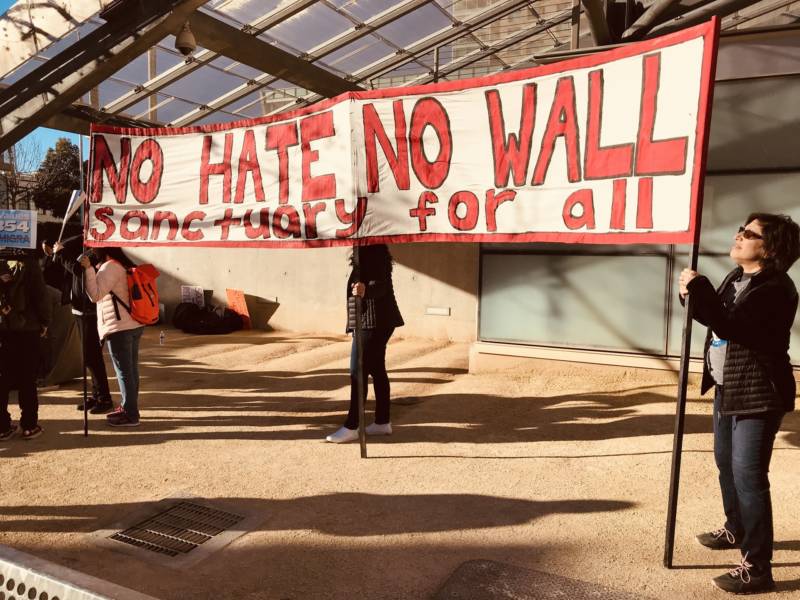A panel of federal judges on Wednesday appeared likely to uphold a lower court ruling that found California's so-called sanctuary policies do not interfere with the federal government's ability to enforce immigration law.
Trump Administration's Bid to Scuttle California's Sanctuary Laws Falls Flat in Court

"The state has enacted a statute that is an obstacle to the enforcement of federal law," U.S. Attorney Daniel Tenny told a panel of judges at a hearing at the 9th U.S. Circuit Court of Appeals in San Francisco.
To which Judge Milan Smith responded, "Because it's an obstacle doesn't mean it's illegal, right?"
Smith, appointed by President George W. Bush, told Tenny he could find nothing in federal law preventing California from refusing to support immigration authorities.
"You have California deciding, for its own policy reasons, that this is contrary to the interests of its public policy. It does not want to be part of it. It feels it's the wrong thing to do," Smith said. "They're entitled to, under the governmental structure of the state of California."
California's Sanctuary Laws
California enacted a series of measures in 2017 to protect undocumented residents.
The most controversial measure, SB 54, known as the "state sanctuary law," limits local law enforcement cooperation with immigration agents — including sharing certain information with Immigration and Customs Enforcement.
Another law, AB 103, empowers the California attorney general to monitor conditions in all immigrant detention facilities in the state for the next decade.
State Attorney General Xavier Becerra released his office's first report on the inspections in February.
The U.S. Department of Justice sued California on March 6, 2018, on the grounds that its sanctuary laws "reflect a deliberate effort" by the state to obstruct enforcement of federal immigration law.
Taken together, the laws “have the purpose and effect of making it more difficult for federal immigration officers to carry out their responsibilities in California,” the Justice Department said.
In July 2018, a federal judge in Sacramento rejected the Trump administration's bid to block SB 54 and AB 103. However, he struck down parts of a third bill, AB 450, that would have required ICE to have a warrant to search privately owned businesses.
At one point in court on Wednesday, Tenny denounced the obstacles that federal immigration authorities face in California, where they can no longer rely on local officials to transfer custody of undocumented people after they serve their criminal sentences.
"You're legally permitted to take custody," he said. "But you better get to the courthouse. You better get to the local police station fast and you better be ready to grab the person as soon as they walk out the door."
But Smith pushed back again, "You're saying, 'Boy, this is really bad. It's really frustrating.' We'll grant you that ... I don't see why it's illegal. Is it illegal?"
If the Trump administration loses its appeal before the 9th circuit, they are expected to petition the U.S. Supreme Court to hear the case.
